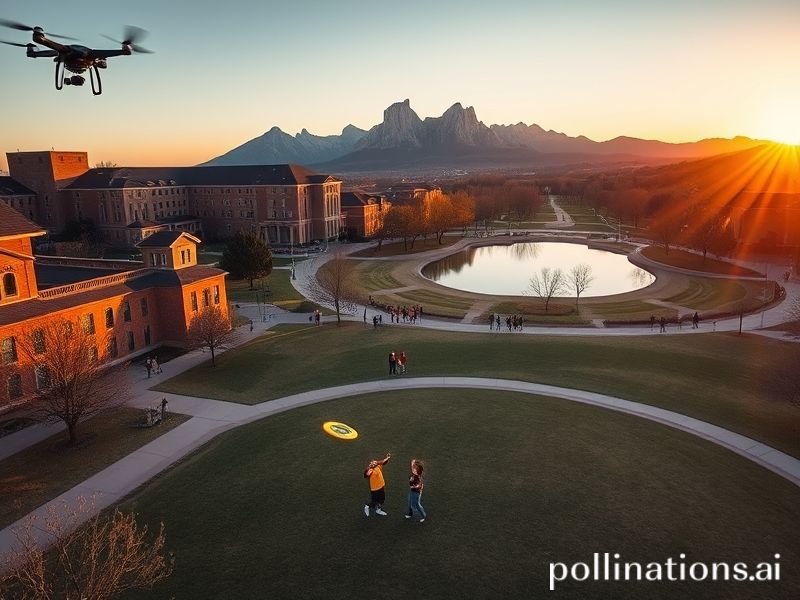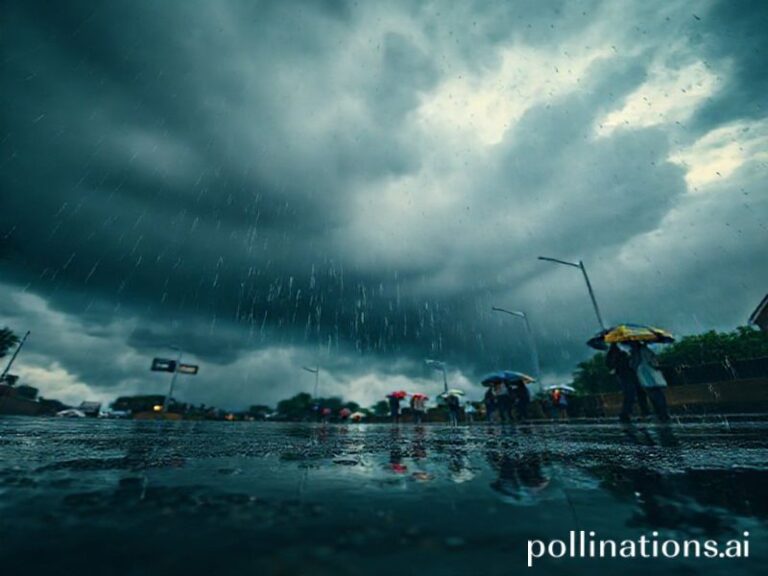CU Boulder: Where the World Trains to Save Itself from Itself
CU BOULDER: THE WORLD’S MOST POLITE GEOLOGICAL INSURRECTION
Boulder, Colorado – For the uninitiated, the University of Colorado at Boulder looks like the sort of place where Mother Nature took a liberal-arts elective and never left. Flatirons the colour of burnt toast rise behind neo-brutalist dorms that appear to have been poured, not built. Students cycle past in Patagonia jackets that cost more than a month’s rent in Lagos, clutching oat-milk lattes and the serene conviction that climate change can still be reasoned with. It’s all very earnest, very carbon-neutral, and—judging by the international applications flooding in—very on-brand for a planet that’s trying to gentrify its own apocalypse.
Globally, CU Boulder has become a sort of finishing school for the Anthropocene. The campus hosts 3,200 foreign students from 100-plus countries, many fleeing regimes that still think “sustainability” is a type of currency speculation. They arrive expecting to learn aerospace engineering, leave having also mastered the art of the micro-aggression workshop, the macro-aggression tailgate, and the delicate diplomacy of telling your roommate from Dubai that the ski-resort hot tub is, in fact, an ecological war crime. The university’s League of Innovative Research Universities membership means its laboratories are now minor theatres in the U.S.–China science cold war; one misplaced quantum-encryption grad student could theoretically shift the balance of global cyber-power, assuming he can first find parking.
Meanwhile, the rest of the world watches Boulder the way one watches a trust-fund cousin who’s discovered yoga: equal parts envy and dread. Europe admires the city’s pledge to be 100 % renewable by 2030; Africa notes that the same people who lecture about carbon footprints just installed heated driveways to melt the snow faster. Southeast Asian governments send delegations to study CU’s aerospace program, then quietly copy the curriculum for a tenth of the price and none of the bong smoke. Even the Taliban, in their more ironic moments, might appreciate that Boulder banned assault weapons before the U.S. Army could finish its own PowerPoint on the subject.
The university’s research output—$640 million last year—rivals the GDP of several Pacific island nations, which is convenient because those islands are busy disappearing under the very seas CU climatologists measure with exquisite, taxpayer-funded precision. One recent paper modelled glacial retreat with such granular accuracy that the lead author was offered asylum in Switzerland “just in case.” In the cosmic scheme, this is progress; in the moral scheme, it’s like perfecting a smoke detector while the house is already on fire and charging the occupants by the beep.
And yet, the brand travels. Japanese investors fund the renewable-energy start-ups sprouting along Boulder’s Pearl Street Mall, each one promising to decarbonise the supply chain for the disposable vapes littering the gutters. Gulf royals enrol their children in the business school to learn “ethical leadership” between semesters in Ibiza. Even North Korea’s state media once praised Boulder’s “harmonious mountain proletariat,” a phrase that sounds suspiciously like an AI hallucination but still made it into KCNA’s nightly broadcast, right between the missile test and the agricultural report.
What does it all mean? In a world where glaciers sulk and democracies binge-scroll their way toward autocracy, CU Boulder has become a paradox: a sanctuary for the privileged to fret about inequality, a launchpad for technologies that may save—or simply monetise—the end of the world, and a live-action role-play of the global contradictions we pretend not to notice. If civilisation collapses, the last working Wi-Fi router will probably be somewhere near the Coors Event Center, password-protected by a sophomore who double-majors in environmental justice and venture capital.
Until then, the Flatirons stand guard like bored bouncers, the prairie wind carries whispers in a dozen languages, and the planet’s future elites learn to say “dude, that’s problematic” in perfect, unaccented English. Somewhere out there, a polar ice sheet calves into the sea. Somewhere closer, a CU freshman posts an apology for the carbon cost of her spring-break flight to Costa Rica. Both events are geologically minor. Only one gets 200 likes.







